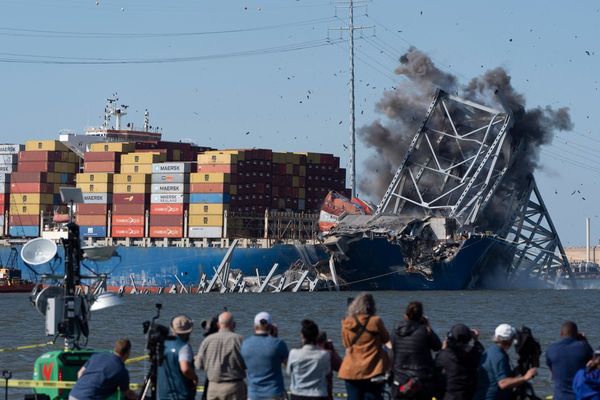THE UK Government must step in "to constrain Israel and to de-escalate" the conflict with Iran, the First Minister has said.
The death toll in both countries has continued to rise as they have both undertaken missile strikes over the weekend. The conflict began four days ago when Israel attacked Iran’s nuclear facilities, with Iran then launching retaliatory strikes.
The conflict has so far caused the loss of hundreds of lives, while human rights group Amnesty International warned that the strikes should not take the focus from the genocide happening Gaza.
Speaking to journalists on Monday, John Swinney said that the situation in the Middle East could “not be more concerning”.
He added: “The humanitarian catastrophe in Gaza has been unconscionable, and amongst the main discussions I had at the British-Irish Council at the end of last week were discussions about the importance of humanitarian aid, which is sitting on the border in Jordan, reaching into Gaza. It’s all sitting there able to go and being stopped.
“It's unconscionable that that is happening just now, and the conflict with Iran has the potential to escalate to a very dark place.
“I think all of that says to me that the international community and the United Kingdom Government particularly have got to marshal their efforts to constrain Israel and to de-escalate this conflict, both in Gaza and between Israel and Iran.
“And the sooner that happens the better.”
The National put to Swinney that Chancellor Rachel Reeves had said that the UK Government could “potentially” support Israel in the conflict, and asked what his assessment was of Westminster’s approach.
“I think the UK Government has got to put more emphasis and weight into the de-escalation and the resolution of this conflict, because this will be, I think you don't need me to tell you this, has got catastrophic implications written all over,” he said.

He repeated his call for de-escalation and said that it would require a “whole-hearted effort of the international community” to achieve a peace settlement.
Swinney said: “A crucial part of that must be the resolution of the situation in Palestine, with the recognition of an independent Palestinian state and a two state solution.
“And as a matter of absolute urgency, which it was a long time ago, for the resumption of humanitarian aid in Gaza. All of these factors are so significant to international peace.”
The First Minister said Scottish Government officials could put any Scots stranded in the Middle East in touch with the Foreign Office to provide assistance.
It comes as Israel’s military claimed on Monday to have achieved “aerial superiority” over Iran’s capital.
The military said it has degraded Iranian air defences and missile systems to the point that its planes can now operate over Tehran without facing major threats, claiming Israel now controls the skies from western Iran to Tehran.
Iran announced it had launched some 100 missiles and vowed further retaliation for Israel’s sweeping attacks on its military and nuclear infrastructure, which have killed at least 224 people in the country since Friday.
Israel said so far 24 people have been killed and more than 500 injured as Iran launched more than 370 missiles and hundreds of drones.
Health authorities also reported that 1277 people were wounded in Iran, without distinguishing between military officials and civilians.
Rights groups, such as the Washington-based Iranian advocacy group Human Rights Activists, have suggested that the Iranian government’s death toll is a significant undercount.
The group said it has documented more than 400 people killed, among them 197 civilians.
Israel argues that its assault on Iran’s top military leaders, uranium enrichment sites and nuclear scientists was necessary to stop Iran from obtaining a nuclear weapon.
Israel has at least 90 nuclear weapons, according to the Nuclear Weapons Ban Monitor. It has never formally admitted to holding them.
Iran has always insisted its nuclear programme is peaceful, and the US and others have assessed that Tehran has not pursued a nuclear weapon since 2003.
But Iran has enriched ever-larger stockpiles of uranium to near weapons-grade levels in recent years and was believed to have the capacity to develop multiple weapons within months if it chose to do so.
While the conflict has gripped headlines, eight Palestinians were killed and dozens more wounded on Sunday in a shooting near Israeli- and US-supported food distribution points in the Gaza Strip.
Witnesses blamed the Israeli military, which did not immediately comment.







